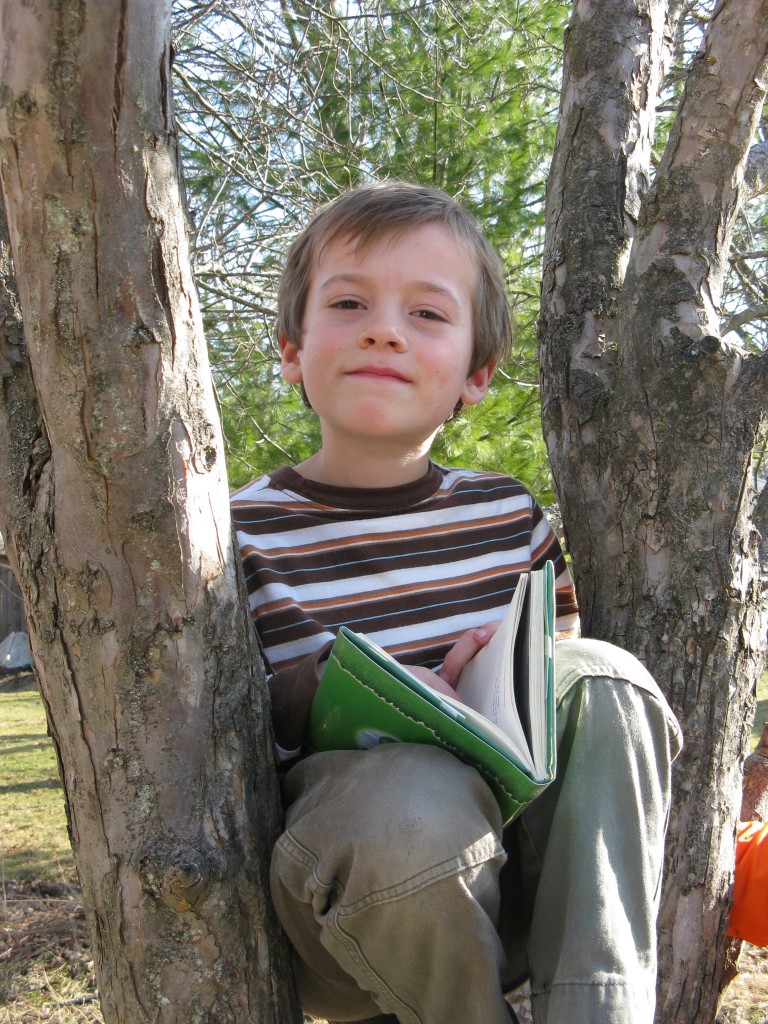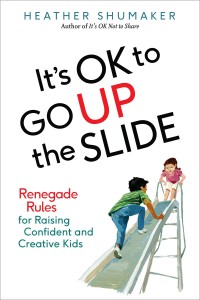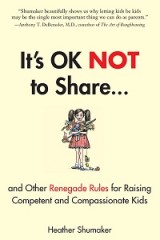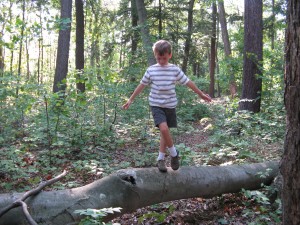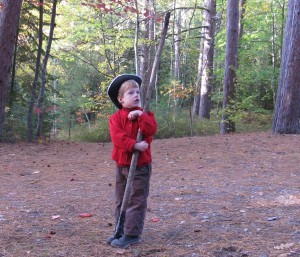A World of Books and Children
Search and enjoy 8 years of posts chock-filled with ideas from It’s OK Not to Share and beyond.
This country is fed up with excessive homework. I know, because every day people stumble on my blog by typing in google searches such as "why there should be no homework" and "are there teachers who disagree with homework?"
Some of the searches make my heart cry:
- My 9 year old grandson did four hours of homework last night
- Homework is killing our family
- Why do kids have homework when they are already in school for 7 hours?
- Third grade homework is painful
- Write a letter to principal requesting less homework
- Homework takes time away from family time
- I don’t sleep enough because of homework
- Junior year homework son crying
I've written about our family's "no homework" stance for elementary school. How hard it is to buck the system, and how important it is for the sake of true education, our children and our families.
So when should homework begin? Should we have homework at all? Here's my answer:
- Preschool - Early childhood = NONE
- Elementary School = NONE
- Middle School = Some "practice" homework in 7th and 8th grade
- High School = Homework, but not daily in all subjects
I do think a healthy homework substitute is asking kids to read on their own. This is best after children are already fluent readers (sometime in 1st-3rd grade) so reading time is a joyful routine, not 'painful.'
I also like the idea of "homework for parents" to help bridge the gap between school and home learning. One good assignment for parents is to read a bedtime story to their kids every night (yes, even into older grades). The other is simply a chance to talk together about what kids are learning in school. (Be careful this remains a give-and-take and doesn't turn into Interrogation Time.) Simply find a regular time when you ask questions and show interest. This naturally leads to conversations and ideas for deeper engagement. "Oh? You're studying reptiles? Let's go to the zoo this weekend and visit the reptile house." Or "You're moving into Civil Rights? Let me tell you the story of your Uncle Harry...."
My stance is that homework becomes important in high school simply because there are so many in-depth subjects to cover and not enough time in school periods for deep reflection (ex: a thoughtful essay) or practicing complex concepts (ex: advanced algebra, calculus). However, as any parent of a high schooler knows, high schoolers are super busy. Early school start times, after school sports, clubs, drama, music, etc., jobs, family responsibilities and teen social life. Even high school homework needs to be coordinated among teachers and not become excessive.
Middle school is a tender, in-between time. Kids this age can do so much, but they're often grappling with social pressure and the complex task of growing up. This takes a lot of emotional energy. There's no need for homework in 6th grade. During 7th and 8th grade it's healthy to add occasional home assignments mainly so kids can get used to planning and time management, figuring out their personal homework routines, remembering assignments and working independently. These skills will be needed in full force in high school, so middle school homework should be considered a training ground.
No matter when homework comes, homework should be 100% the child's responsibility. No parent signatures. No required parent involvement. No parent nagging or reminding. This doesn't mean there shouldn't be family courtesy - "Do you have a busy night tonight?" or "We're going to Aunt Hilda's this weekend - what do you need to get done?" It also doesn't mean parents or siblings can't help out. "I see you're looking frustrated with those spelling words. Would it help if I read them out loud with you?" That's called engagement.
Families teach in every interaction. How to care for each other and be part of a healthy family. How to care about education and the world around us. How to take responsibility. How to do our best and seek challenges. How to love learning.
Homework sometimes clouds the issue, but we need to keep clear in our minds -- and remind teachers and school administrators -- that there are all kinds of learning. Families need family time to teach kids to wash the dishes, sweep the floor, help their siblings, exercise outside, make music/art/other creation and cuddle together with a good book. School assignments shouldn't shoulder out other types of learning. And they shouldn't shoulder out good sleep. Sleep deprivation hurts kids much more than homework ever helps them.
Our job is to grow our kids. Grow them into who they are. Sometimes that means keeping homework at bay.
What age do YOU think homework is healthy to start? Should there be homework at all? What types of learning "needs" be done at home that can't fit into the school day?
Ready to learn more about homework and ideas for reducing it and opting out? Heather Shumaker's new book "It's OK to Go Up the Slide" devotes multiple chapters to homework. Pick up a copy to find a healthy alternative.
My first blog post went up last spring. I had one reader the first day. Since then I've welcomed more than 35,000 readers to this "renegade" blog. Whew! Thanks to each and every thoughtful reader.
Today I'd like to share with you a round-up of the year's most popular posts.
Did you miss any of these hot topics?
Why we say 'NO' to Homework - why our family prefers tree forts over homework.
Sticks Belong in the Hall of Fame - risk, danger and why we should put safety second
Keep the PRE in Preschool - what universal preschool needs to look like
Sharing Sad Stories - why kids need stories without happy endings
It's OK Not to Share - guest post with Amy McCready, 2 part series on renegade sharing and kids taking long turns.
Enjoy the round-up. Subscribe so you don't miss a post this year -- just enter your email on the right. I also have an author page on Facebook if you'd like to keep track of new posts there. Thanks for joining the journey!
What are YOUR renegade rules for life?
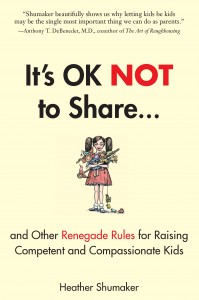 If you like what you're reading here, you'll find more of the same - plus pages of practical tips for parenting active, emotional, normal, lovable kids - in my book It's OK NOT to Share...And Other Renegade Rules for Raising Competent and Compassionate Kids (Tarcher/ Penguin 2012).
If you like what you're reading here, you'll find more of the same - plus pages of practical tips for parenting active, emotional, normal, lovable kids - in my book It's OK NOT to Share...And Other Renegade Rules for Raising Competent and Compassionate Kids (Tarcher/ Penguin 2012).
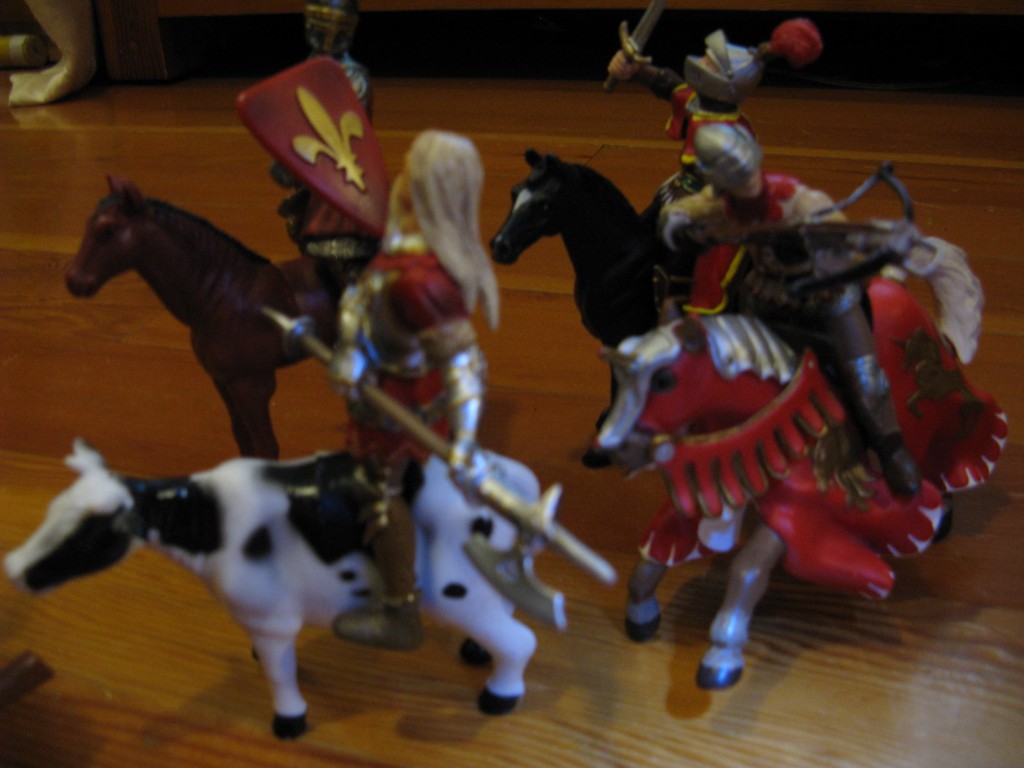
Which one is the red horse? Who cares? More important learning - use a cow if you run out of horses.
We recently got a new set of blocks for my son. Castle blocks - the kind with painted drawbridges and turrets. He loves all things knights and horses, and so far many towers and dungeons have been built, crashed and tumbled.
What dismayed me was the back of the package.
It's one of those Melissa and Doug toys - sturdy, wooden toys built to last and supposedly in touch with kids and their imaginations. Instead the package label exhorted parents to "Expand your Child's Learning." How? These were the suggestions: ask your child which are the yellow and red blocks, ask your child to count all the tower blocks, ask your child to sort the blocks by type, etc.
That's interrupting play. That's not expanding learning.
If you sit down to play a game of castles or blocks with your child, it should be as a playmate engaged in normal give and take. "Let's make a moat." "Do you need more blocks? Here - you can share mine." "Where should we put the knight?" "You've made a lot of windows."
Of course, adults don't always have time or interest in playing games with kids, and that's absolutely natural. You can still watch and engage your child by making observations "That's a tall tower." "Look at all the horses you have." Or leave them completely alone.
It makes me squirm when I hear adults constantly peppering kids with questions that are largely irrelevant to kids. "Which one is blue? Which one is orange?" "How many ducks are there?" "Where's the circle?" "What letter is this?" Listen carefully next time you hear it or say it yourself.
Colors are not hard. Let kids enjoy colors without being constantly quizzed about them. The same is true for animals, animal noises, counting, days of the week, weather, shapes and more. We seem to fixate on teaching young kids certain vocabulary words but ignore others completely (do we quiz them on which meal comes first, breakfast, lunch or dinner? on the difference between aunts, uncles and grandmas?). Kids are language machines. They pick up so much, constantly, from context and from caring people around them. They figure out on their own that their sister has two more pieces of candy than they do.
Here's some tips to break the quiz habit
- Make an observation. "You're using lots of purple in that picture."
- Share things you like yourself. "I love the orange and gold leaves on that tree! It's gorgeous today."
- Help a child reach her own goal (not yours). "I see you're building a tall tower using lots of blocks. Do you want to make it higher? The blocks are all gone. What could you use?" or "What do you need for your game?"
- Expand, don't interrupt. If a child is fully engaged in play she's already learning at her optimal level. Respect what's going on. Pause and ask a relevant question. "What's the king doing up there?" Don't change the subject.
- Say nothing at all. Don't interrupt a good thing.
- Don't ask a question if you already know the answer. "What does the chicken say?" This helps immensely to avoid power struggles, too, especially with catching kids in "lie traps." "Did you write on the wall?"
- Buy toys that are not advertised as "educational." Don't follow the "educational" or "enrichment" instructions on toys. Remember, it's all advertising, designed to make you feel you're not doing enough for your child. Resist!
- Read lots, sing songs, live life. Relevant vocabulary is all around us.
Were you quizzed as a kid? Do you remember how you felt about it? Why are we collectively worried that kids won't notice the beautiful colors of life?

